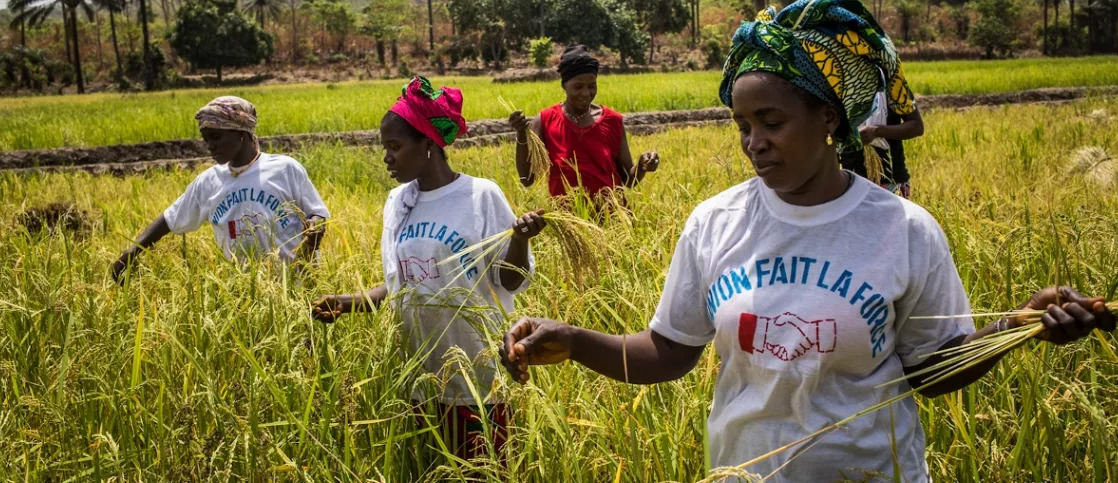Sub-Saharan Africa brims with untapped potential, boasting a rich tapestry of landscapes and cultures. Yet, it grapples with a crisis that many argue is eroding its very foundations, as the region ignores women, a group with the potential top fuel its economic growth.
Poverty and insecurity continue to bedevil the region, with the United Nations stating that 534 million people in the region live in dire poverty, and this is despite its abundant resources.
For many, the inability of the region to tap from its abundant resources, especially, women resource to chart a course of prosperity, is one of the reasons why it lags behind,
A 2023 study on the Freedom and Prosperity Indexes sheds light on the link between freedom and prosperity. It underscores a persistent challenge in Sub-Saharan Africa: the gender disparity and the underrepresentation of women in economic endeavours.
The paper argues that true prosperity, particularly for women, remains elusive until greater freedom is attained.
In the sub-continent, where tradition is supreme, and gender inequality continues to loom, impeding the region’s prospects for sustainable development. To combat this, empowering women must become a paramount objective. By unlocking the financial potential of women, we can chart a course towards development and alleviate poverty.
This article delves into the significance of women’s empowerment and proffers two pivotal recommendations for nurturing inclusive and flourishing economies in Sub-Saharan Africa
Quality Education
The World Bank reported that closing the gender gap in education could lead to a 1.2% increase in per capita GDP growth rates in Africa.
In July 2023, the Vice President of Nigeria, Kasim Shettima, in a meeting with a United Nations delegation, said that “the prosperity, the respect of every society is directly proportional to the way they treat their women folk.”
However, there are social issues affecting the education of the girl child in Nigeria. According to Amnesty International, Boko Haram abducted 276 students from a girls’ school in Chibok. 98 of the girls are still in captivity to this day. Since then, girls have continued to be abducted in schools. In recent times, girls have been abducted and attacked in different parts of the nation.
The abductions have planted fear in the minds of the parents, who are now afraid of taking their children to school. No wonder the highest rate of out-of-school children are from Northern Nigeria, as reported by Business Day, a Nigerian newspaper.
Despite these fears, Modupe Fasoranti, a Professor of Economics at Adekunle Ajasin University in Akungba-Akoko, Ondo State, insist that a breakthrough for any nation lies in its ability to solve the female education puzzle.
Professor Fasoranti emphasized the vital role of training the girl child in building a strong economy, stating that empowering girls can have far-reaching effects on the nation. In contemporary times, the professor noted that even men seek partners who can contribute to the family’s economic well-being, underscoring the importance of economic education and empowerment for girls.
“So training them will have an impact on the whole nation. In those days people believed that the girl’s education ended in the kitchen but it’s no longer like that. Women are now taking important positions in the world.”
Financial Inclusion
Access to financial services is crucial for women to start businesses, invest in their ideas, and participate actively in economic activities. Governments and financial institutions should prioritize initiatives that promote financial literacy among women, increase their access to credit and capital, and provide supportive frameworks for women-owned enterprises.
Professor Fasoranti highlighted the necessity for women to acquire skills and receive financial empowerment. She underscored that when equipped, women can make remarkable contributions to various sectors and industries in Nigeria, ultimately benefitting the nation as a whole.
“Women are contributing greatly to our economy, and they are making names in their careers. Even full-time housewives who don’t hire a nanny contribute their own quarter to the economy,” she said.
The Global Findex database reveals that closing the gender gap in financial inclusion could unlock economic opportunities worth $700 billion globally. Empowering women economically leads to greater productivity, innovation, and job creation.
“It is not proper for the girl child to be idle. She should contribute to the economy. Women take about half of the population and imagine if half of the population are not working. The economy is doomed,” the Professor concluded.
Sub-Saharan Africa, rich in landscapes and cultures, faces significant challenges such as pervasive poverty and insecurity, with 534 million people living in dire poverty despite abundant resources. A major issue contributing to this is the neglect of women's potential in fueling economic growth, exacerbated by gender disparity and underrepresentation in economic activities.
A 2023 study on Freedom and Prosperity Indexes highlights that true prosperity for women in the region requires greater freedom. Empowering women is essential for sustainable development, and this can be achieved through two key means: quality education and financial inclusion.
Closing the gender gap in education could boost per capita GDP growth rates by 1.2% in Africa as per the World Bank. However, social issues, such as abductions by Boko Haram, hinder the education of girls in Nigeria. Despite these challenges, experts like Professor Modupe Fasoranti stress that educating the girl child is crucial for national development.
Financial inclusion is just as important. Access to financial services allows women to engage in economic activities, start businesses, and invest in their ideas. Initiatives that promote financial literacy, access to credit, and support for women-owned enterprises are necessary. According to the Global Findex database, closing the gender gap in financial inclusion could unlock $700 billion in economic opportunities globally.
Empowering women economically promotes greater productivity, innovation, and job creation, benefiting the nation as a whole. As Professor Fasoranti notes, the full potential of the economy can only be realized if women are actively contributing to it.






